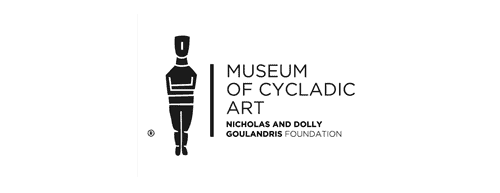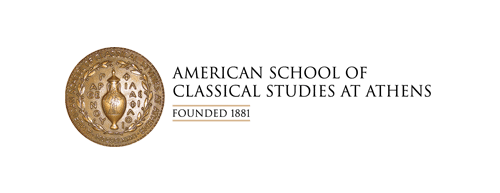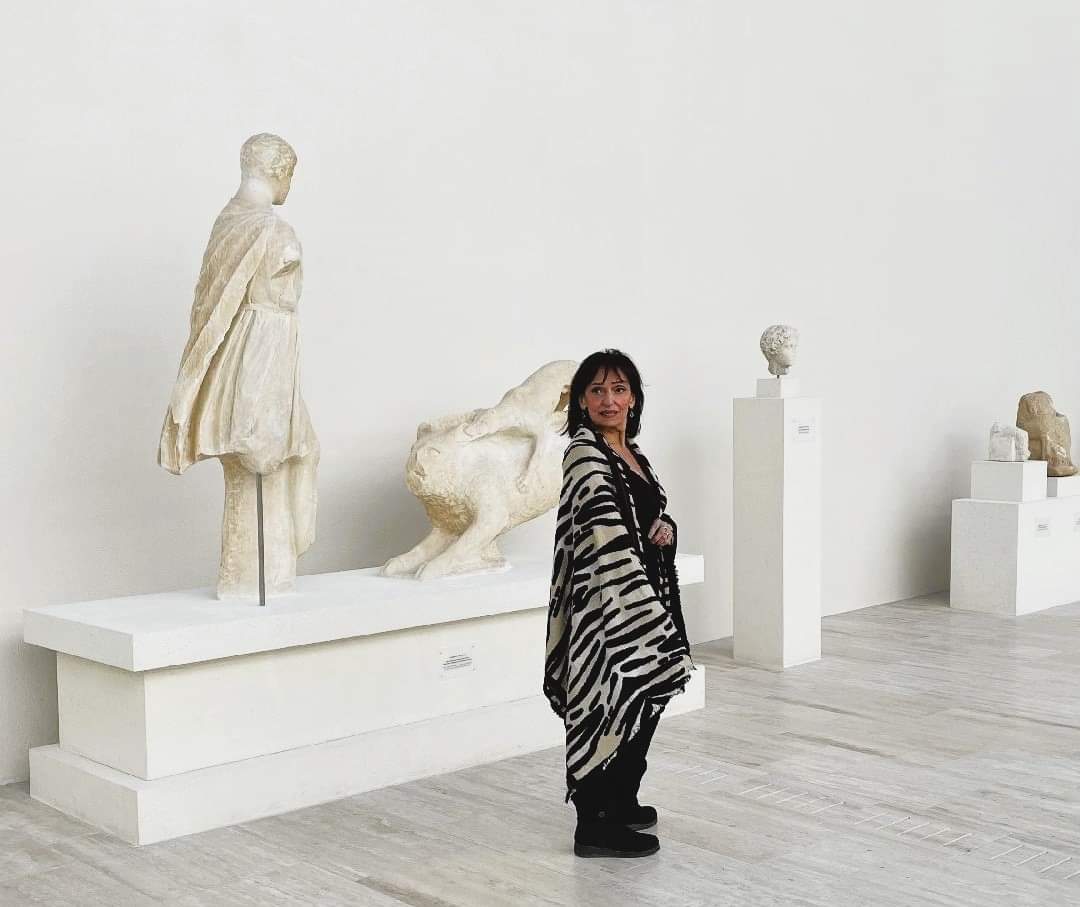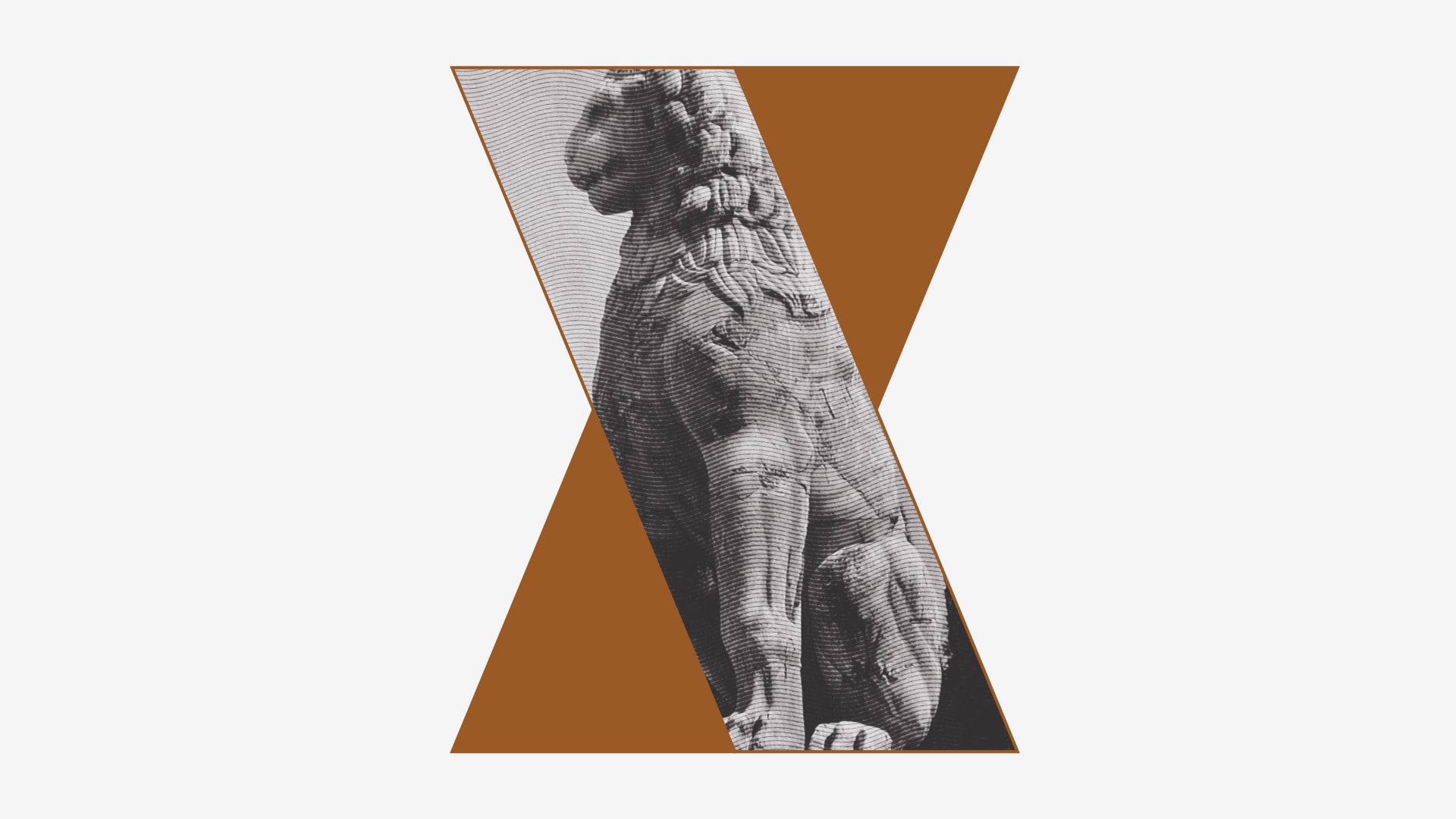Dr Angeliki Kottaridi Alexander and Aristotle in Mieza: the royal Gymnasium, Chaeronea and the creation of the “New World”
LECTURE
MARCH 4, 2024
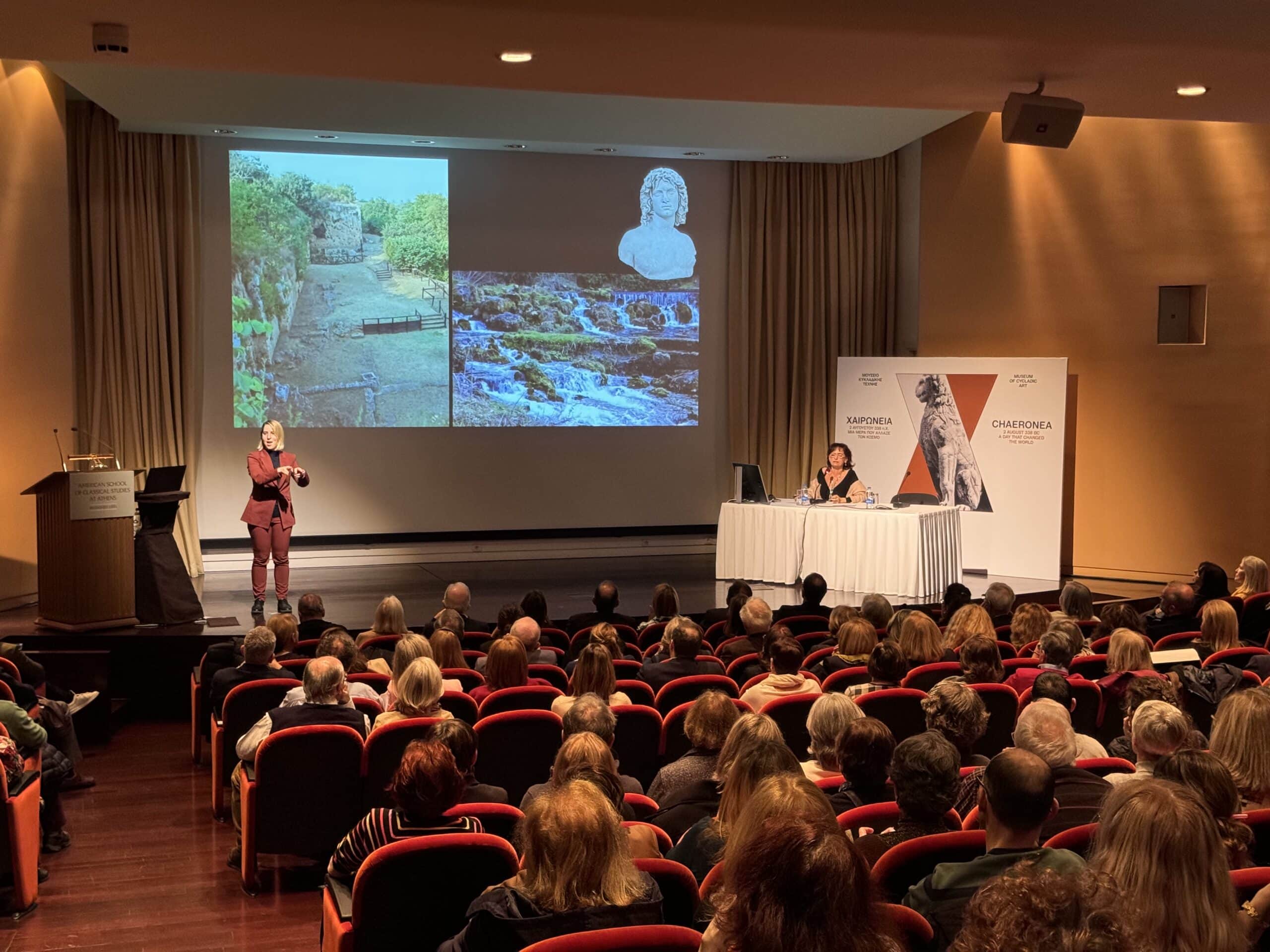
In 343 BC, Aristotle arrives at the Macedonian court and undertakes to teach Alexander and the young Macedonian aristocrats of his generation. The teacher and the students will spend only three years together, but the consequences will affect the history of the world. In her lecture, which will take place at the American School of Classical Studies at Athens, Angeliki Kottaridi will explore the reasons that led Philip to create a royal gymnasium and present the evidence that leads to its identification with the impressive building complex excavated next to the ancient theater of Mieza, in the plain of Naoussa.
At the same time, the talk will outline the consequences that this emblematic institution will have. It was here that the victory in Chaeronea was essentially prepared for. Further, its existence influenced both the architectural and functional organization of ancient gymnasiums, as well as shaped the creation and consolidation of the ‘Hellenistic koine’ (common culture) in the ancient world that will make up the then Oikoumene.
The lecture will be held in Greek.
VIDEO
CV
Born in Thessaloniki, Angeliki Kottaridi studied Archaeology and the History of Art at the School of Philosophy of the Aristotle University of Thessaloniki whence she graduated with honours. With a scholarship from the German state, she continued her postgraduate studies in Classical, Prehistoric and Medieval Archaeology, Art History, Ancient and Medieval Philology, Ethnology and Theater Studies at the University of Cologne, where she received her doctorate. For a number of years she worked as assistant to Manolis Andronikos in the excavation of Vergina and from 1991, as the first successful candidate in the 1989 competition of the Archaeological Service, she joined the staff of the Ministry of Culture.
From 2010 to 2014 she was the director of the 17th Ephorate of Prehistoric and Classical Antiquities, from 2011 of the 11th Ephorate of Byzantine Antiquities and from 2014 to 2024 of the Ephorate of Antiquities of Imathia. Director respectively of the museums of Pella, Veroia (Archaeological and Byzantine) and Aigai, she devised and organized a series of permanent and temporary exhibitions in Greece, but also ones abroad. Responsible for the design and development of a series of conservation, restoration and enhancement projects for monuments and archaeological sites, she supervised and participated in the drafting of numerous studies, but also in the implementation of a series of National and European projects in the prefectures of Imathia, Pella and Kozani. She took care of the restoration of fourteen Byzantine and post-Byzantine churches, two Byzantine citadels, a mansion, four Ottoman monuments and five archaeological sites. She is the driving force behind the creation of the exhibition of the treasures of the royal tombs and the Polycentric Museum of Aigai, but is also administratively and scientifically responsible for the great project of the restoration of the palace of Philip II in the Royal Metropolis of Macedon and for the digital museum for Alexander the Great. “Alexander the Great: from Aigai to the Civilized World” is an extremely ambitious digital project implemented within the framework of the NSRF and concerns the systematic promotion of the importance not only of Alexander the Great, but also of the entire and vast Hellenistic world and its ever-present legacy.
A field archaeologist par excellence, she has headed important research projects with excavations and surface surveys, in Aigai, in the wider Imathia and in Kuwait, but also undertaken systematic study, documentation and many-facetted publications. She has published nine books and more than 120 academic articles. She was a member of KAS and the Council of Museums, as well as of various other councils and committees of the Ministry of Culture. For her work, she has been awarded the Golden Cross of the Order of the Phoenix by the President of the Hellenic Republic.
THE EXHIBITION
The lecture takes place as part of the temporary exhibition Chaeronea, 2 August, 338 BC: A day that changed the world.
The exhibition highlights the importance the Battle of Chaeronea had in ancient times, at the transition from the Classical to the Hellenistic period. The latter became an era in which Greek civilization was dominant for centuries and laid the foundations of what we call the Western world. The theme is the battle that opposed the Macedonian army of Philip II against that of the allied Greek cities of southern Greece – and in particular the Sacred Band of Thebes and the army of Athens – a conflict that for the first time brought the eighteen-year-old Alexander to the front line of history: Alexander who was soon to conquer the world with his great campaigns in Asia.
